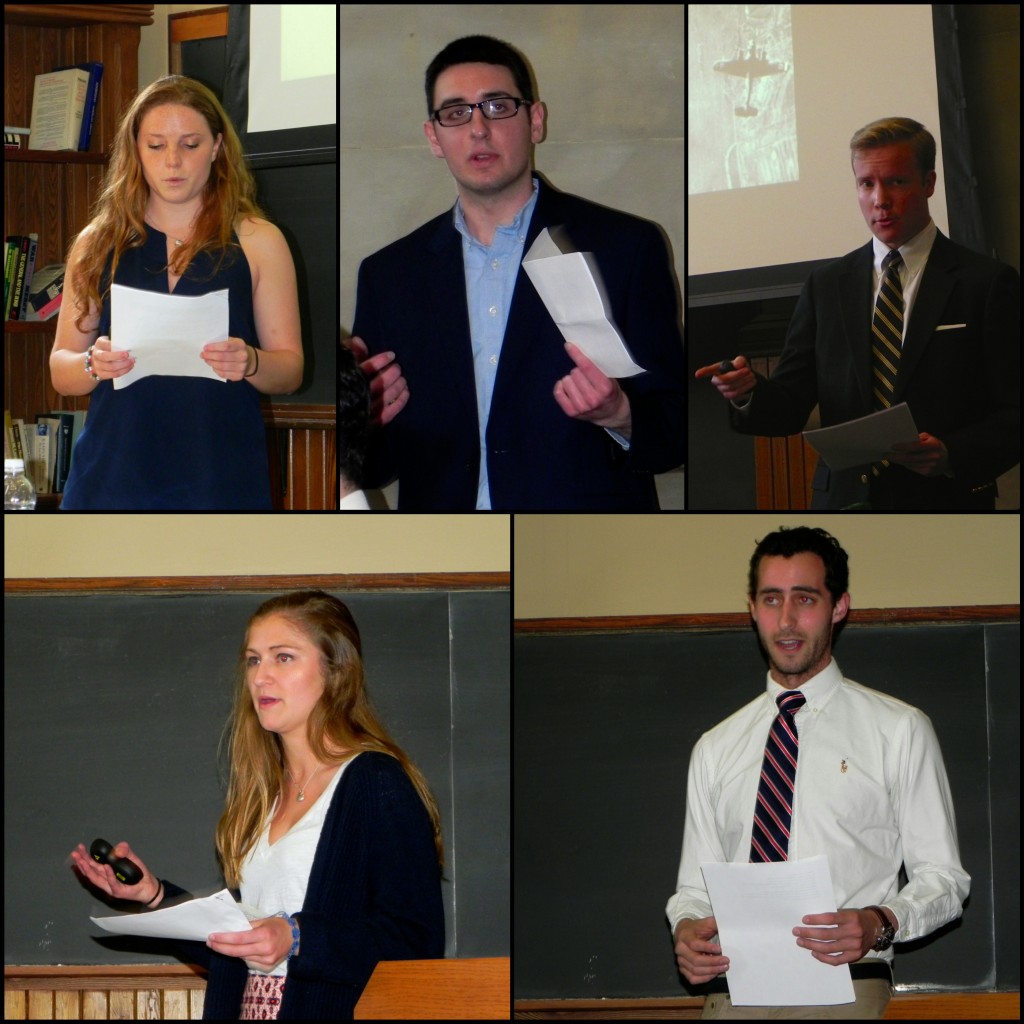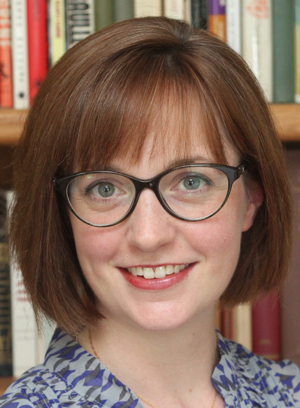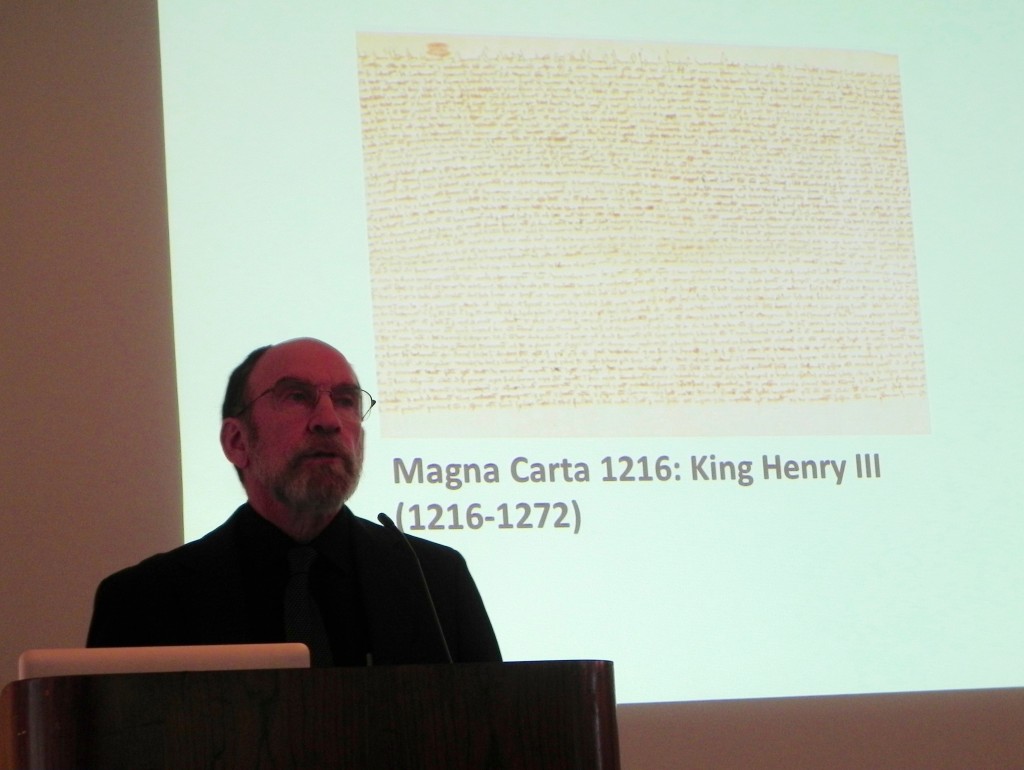Home » European History (Page 3)
Category Archives: European History
My European Experience

Written by: Tyler Wren (History, Class of 2019)
I am ever so grateful to the history department for the opportunity to travel to and study in Europe. Their sponsoring of my attendance in the new J-term course offered in Paris, POLS-209, and also providing an additional $1,000 for travel expenses, this allowed me to not only travel to Paris but also enabled me to travel more broadly within Europe itself. For example, giving me a cheaper and faster route to also visit London. Going to both London and Paris were crucial experiences for my upcoming research paper on Brexit and its implications on Europe that I will be writing with Professor Regan-Lefebvre.
Beginning with Professor Lefebvre’s class provided the perfect precursor for me on Brexit. What I learned from the primary source analyses and big-picture observances will definitely be relevant in the paper. Meeting with the media coordinator of the Delegation of the European Union was a crucial experience, providing insight into the national inner workings of the EU in France.
Project 1917
Written by: Dylan Hebert (History, Class of 2017)
“1917. Free History” is a project that presents the events of 1917 in the form of social media. The stated goal of the project is to “enable participants to find out about the history of 1917 from those who lived during this defining moment of twentieth century history.” A Russian project, the site is focused mostly on Russian history. The year of both the February and October Revolutions as well as a major year in World War I, 1917 is a landmark year in Russian history.
The Annual Philip C.F. Bankwitz Lecture: Money, History and the French Revolution
On Thursday, November 3, 4:30pm (Reese Room, Smith House): The History Department will be sponsoring its annual Philip C.F. Bankwitz Lecture titled, “Money, History and the French Revolution” featuring Rebecca Spang is Professor of History and Director of the Center for EighteenthCentury Studies at Indiana University. Her first book, The Invention of the Restaurant: Paris and Modern Gastronomic Culture, has been translated into Japanese, Portuguese, Turkish, and Modern Greek. It was the recipient of two major prizes, the Gottschalk Prize for the best book in eighteenth-century studies, awarded by the American Society for Eighteenth-Century Studies, and theThomas J. Wilson Memorial Prize for best first book, awarded by the Harvard University Press.
Her most recent research is on the subject of money. Stuff and Money in the Time of the French Revolution, published by Harvard University Press in 2015, uses one of the most infamous examples of monetary innovation — the assignats — to write a new history of money and a new history of the French Revolution. It shows that revolutionary radicalization was driven by the ever-widening gap between political ideals and the experience of daily life and restores economics, in the broadest sense, to its rightful place at the heart of the Revolution (and hence of modern politics).
J-Term in Paris: HIST 237: The History of French Wine
This course introduces students to the history of French wine. Students will gain a critical, contextualised understanding of how French wine has evolved over the past three centuries and how it has made its mark on French culture, society and politics. This intensive course incorporates the city of Paris experientially. Classes will be divided into short taught sections, in-depth discussions of primary and secondary literature, and three excursions: a professional wine tasting emphasising regional differences in France and the concept of terroir; a visit to a working vineyard to highlight the technical and spatial aspects of wine production; and a visit to a wine museum to explore the evolution of wine through material culture. Fee: $250.
Instructor: Jennifer Reagan-Lefebvre, PhD, is Associate Professor of History at Trinity College, where she teaches British history and a popular course on global wine history. She previously taught at the University of Cambridge and the American University of Paris. She is the author of Cosmopolitan Nationalism in the Victorian Empire (2009) and is writing a history of the wine trade. In 2016 she was honored with Trinity’s Hughes Award for Achievement in Teaching. Contact: jennifer.reganlefebvre@trincoll.edu
J-Term classes are $1,500. Additional fees apply.
Trinity International Hip-Hop Festival Program, April 7–10, 2016
From its creation in academic year 2005–2005 by a group of Trinity College students as a vehicle to “combat the disunity, segregation, and violence of Hartford, CT and Trinity College,” the Trinity International Hip Hop Festival always has close ties with several History majors and faculty.
One its co-founders, for example, was Jason P. Azevedo ’08, currently a career U.S. Department of State Foreign Service Officer specialized on Africa and Brazil.
Since 2009, History and International Studies Assistant Professor Seth Markle has served as the main academic advisor to Trinity Chapter of Temple of Hip Hop and annual Trinity International Hip Hop Festival.
As the coordinating group has put it, from the beginning the festival’s main strategies and goals have been using a “the historically education-oriented and politically revolutionary medium — Hip Hop – and focusing on its global potency and proliferation, the Trinity International Hip Hop Festival works to unify Trinity College, the city of Hartford, and the Globe.”
This year’s program, includes lectures and panel discussions with a variety of scholars, artists, and community activists; film screenings, graffiti and photo exhibits, workshops, and performances, including Dance Event / B-Boy Battle on Friday, April 8th (7pm–2am), the Saturday April 9th (8pm-2am) Hip Hop Concert, featuring Rakim and several other MCs and DJs. The festival ends on Sunday, April 10th with a DJ showcase and the Iron Poet Slam Competition.
You can find the Festival’s FULL PROGRAM here: 2016 Program for the Trinity International Hip Hop Festival – We hope to see you there!
Mead Lecture & Student Reactions
On Tuesday, October 20th, Dr. Stephen D. White, Candler Professor Emeritus of Medieval History at Emory University and Visiting Professor at Harvard University delivered the History Department’s annual George J. Mead (Class of 1937) Lecture: “Magna Carta: How a Total Failure Became “the Greatest Constitutional Document of All Times.”
The Mead Lecture in History, established by a bequest in 1952, is Trinity’s most prestigious endowed annual lecture. Previous lecturers have included James McPherson, Philip Curtin, Alan Samuel, and E. P. Thompson. The fund was established in honor of George Jackson Mead of Bloomfield, Connecticut. He graduated from Choate preparatory school and the Massachusetts Institute of Technology.
Mr. Mead was a founding partner in the Pratt & Whitney Aircraft Company and the designer of its Wasp engine, whose widespread use and reliability transformed military and commercial aviation in the U.S. He later served as an advisor to President Franklin D. Roosevelt, guiding wartime aircraft production throughout the nation, and was awarded the President’s Medal of Merit in 1948. His intent was that the Mead Fund support lectures, prizes, and other programs to stimulate the study of government, economics, and history, in order to better prepare students for government service. Mr. Mead received an honorary doctorate from Trinity College in 1937.
Senior Thesis Presentations, Class of 2015

On Thursday, April 30, 2015, the history thesis writers presented their research findings to the department and other guests. For more than a year, five students have been researching and writing and, in the process, forging bonds of friendship among each other and mentorship relationships with history professors. Their research projects explored a variety of themes, and served as critical interventions in the study of American slavery, Nazism and the Third Reich, Mediterranean city-state formations, the U.S. and World War II, and international travel and literary production.
The names of the students, the titles of their projects, and the names of their advisors are as follows:
Tyler Green, “A Connecticut Yankee in London: Mark Twain’s Rise fromd Humble American Humorist to Literary Great”
Thesis Advisors: Profs. Lefebvre & Hedrick
Duncan Grimm, “Forging an Alliance of Purpose: John Gilbert Winant, Edward Roscoe Murrow, and Creating an Anglo-American Worldview”
Thesis Advisors: Profs. Regan-Lefebvre & Hedrick
(more…)
Message from Our Newest Historian: Prof. Jennifer Regan–Lefebvre
The History Department is delighted to welcome our newest member, Professor Jennifer Regan–Lefebvre, whom we recruited last winter through an international search to teach a variety of courses in British and British Imperial history.
 Prof. Regan–Lefebvre earned a Ph.D. from Queen’s University Belfast in 2007 and a B.S. from Georgetown University in 2003. She has taught at the University of Exeter, the American University of Paris and the University of Cambridge, where she was a fellow, the Director of Studies in History and the Assistant Tutor at King’s College.
Prof. Regan–Lefebvre earned a Ph.D. from Queen’s University Belfast in 2007 and a B.S. from Georgetown University in 2003. She has taught at the University of Exeter, the American University of Paris and the University of Cambridge, where she was a fellow, the Director of Studies in History and the Assistant Tutor at King’s College.
History@Trinity hopes to publish soon excerpts from an interview in which she discusses in detail her research and teaching and her plans for the near future.
In the meantime, Prof. Regan–Lefebvre has kindly provided us with the following statement:
“I am delighted to be joining the History Department at Trinity in 2013 and am looking forward to getting to know students and colleagues at Trinity.
My expertise is in British and British Imperial history and I’m particularly interested in how modern Britain was shaped and affected by the British Empire.
I’ve written a book about relations between Irish and Indian nationalists in the nineteenth century and I’ve also published on the history of travel, race and racism, and the press. I am currently researching a history of the London wine trade since 1800.
In 2013-2014 I’ll be teaching a First Year Program seminar on the history of London (“London: Traditional, Modern and Global”) plus three History courses: “Modern Britain and Imperial Culture,” “Modern Britain since 1750” and “Modern Ireland, Global Ireland.”
I’m originally from Massachusetts but have lived in Europe for eighteen years. I’m very excited to be returning home to New England and am particularly looking forward to watching the leaves change on the Trinity campus this fall.”
.
Prof. Kassow in Poland for 70th Anniversary of Warsaw Ghetto Uprising
 HARTFORD, CT, May 9, 2013 – Since the 2007 publication of Who Will Write Our History? Emanuel Ringelblum, the Warsaw Ghetto, and the Oyneg Shabes Archive, Samuel Kassow, Charles H. Northam Professor of History at Trinity, has won numerous awards, been elected a Fellow of the American Academy for Jewish Research, lectured often and widely, and been recognized as one of the world’s leading scholars on the Holocaust and more specifically, the fate of Jews in Poland. Just last month, Kassow was invited to Warsaw to commemorate the 70th anniversary of the Warsaw Ghetto uprising and was asked to speak at the unofficial opening of the Museum of the History of Polish Jews. The five-day event, April 18-22, was somber yet uplifting and featured a number of dignitaries and notable organizations, including the president of Poland, Bronislaw Komorowski; the Israeli Philharmonic and conductor Zubin Mehta; philanthropic organizations; human rights activists; scholars; and Simcha Rotem, one of the last survivors of the ghetto uprising. “It was really, really amazing,” said Lisa Kassow, director of Trinity Hillel and Sam’s wife. “The anniversary of the Ghetto uprising overtook the entire city. There was nothing else going on. Everywhere you turned, there were advertisements about events and Jewish issues.””
HARTFORD, CT, May 9, 2013 – Since the 2007 publication of Who Will Write Our History? Emanuel Ringelblum, the Warsaw Ghetto, and the Oyneg Shabes Archive, Samuel Kassow, Charles H. Northam Professor of History at Trinity, has won numerous awards, been elected a Fellow of the American Academy for Jewish Research, lectured often and widely, and been recognized as one of the world’s leading scholars on the Holocaust and more specifically, the fate of Jews in Poland. Just last month, Kassow was invited to Warsaw to commemorate the 70th anniversary of the Warsaw Ghetto uprising and was asked to speak at the unofficial opening of the Museum of the History of Polish Jews. The five-day event, April 18-22, was somber yet uplifting and featured a number of dignitaries and notable organizations, including the president of Poland, Bronislaw Komorowski; the Israeli Philharmonic and conductor Zubin Mehta; philanthropic organizations; human rights activists; scholars; and Simcha Rotem, one of the last survivors of the ghetto uprising. “It was really, really amazing,” said Lisa Kassow, director of Trinity Hillel and Sam’s wife. “The anniversary of the Ghetto uprising overtook the entire city. There was nothing else going on. Everywhere you turned, there were advertisements about events and Jewish issues.””
(more…)
Class of 2013 History Prizes at 63rd Annual Honors Day

“HARTFORD, CT, May 3, 2013 – The Trinity College Chapel served as the site Friday, May 3 for the school’s 63rd annual Honors Day Ceremony in which more than 200 students were cited for their scholarly, athletic and community-oriented achievements. Some students were recognized more than once. The honorees, which included members of the Classes of 2013, ’14, ’15 and ’16, were presented with a broad array of prizes and awards for their contributions and accomplishments over the years. The ceremony originated when George Keith Funston, who served as Trinity College President from 1945 to 1951, sought to re-establish the school’s academic pageantry, which had been halted during World War II. Matriculation and the Book Ceremony for first-year students were restored, and in the spring of 1950, Honors Day was added as a new event. It was intended to be an occasion when all Trinity prizes and awards — with the exception of those handed out at Commencement – could be celebrated in the presence of the entire College community.” (source: http://www.trincoll.edu/NewsEvents/NewsArticles/pages/HonorsDay2013.aspx)
Congratulations to all of the following the history majors awarded prizes:
(more…)



